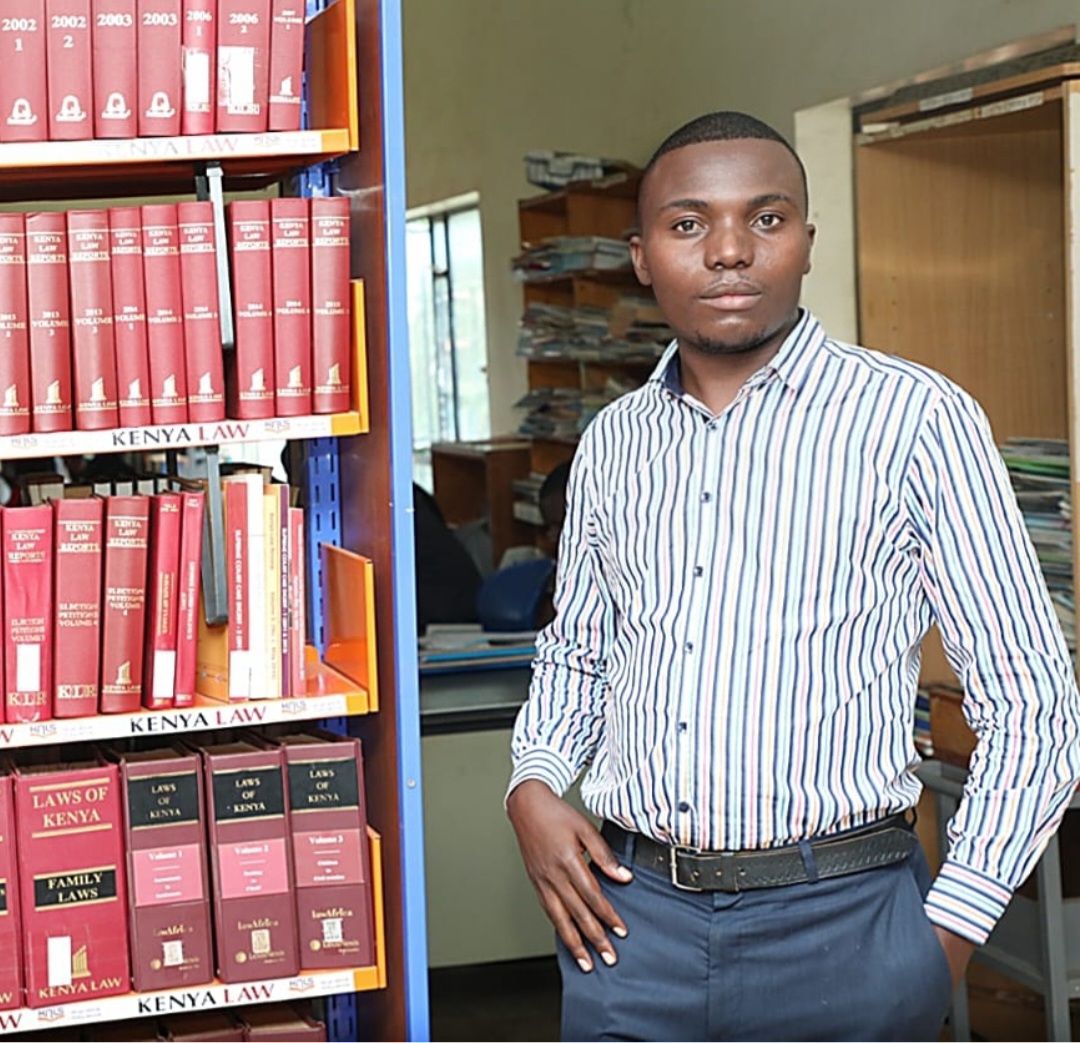I first stepped into the world of the Kakamega Library during my high school years, though not by formal invitation. There were no golden tickets, no official summons. My guide was not a teacher, nor a robed academic, but a boyhood companion by the name of Steven Nyangweso. He was a class behind me at Shikomari Mixed Secondary School, a humble institution with big dreams and even bigger chalk dust clouds. Steve may have trailed me in the official class register, but in the secret matters of books and the sacred culture of reading, he was miles ahead.
Our school holidays in the village of Bumamu were not idle affairs. We didn’t just pass time; we repurposed it. While other boys chased goats or played football on dusty pitches at either the late Wesonga’s Murungeti church fields or the Khulechio Maria grounds next to Ongong’i’s homestead, Steve and I turned our break into a self-declared academic retreat. The headquarters of this noble mission was the warm and generous home of Steve’s family. There, beside humming trees and timeworn wooden chairs, we revised our notes and read deeply.
Steve had something rare in our circles, something bordering on myth: he had books. Piles of them. Textbooks, storybooks, dogeared novels, even a small archive of Daily Nations and East African Standards that carried the voices of the outside world straight into our quiet village. It was in those sun-drenched afternoons that I first encountered the sharp, witty pen of Kwamchetsi Makokha. His words didn’t just report; they danced, provoked, and poked holes in mediocrity. Reading him felt like eavesdropping on a very clever, very necessary national conversation.
But Steve’s gifts didn’t end at print. He also had a sturdy black bicycle—and an even sturdier sense of adventure. And so, with the rising sun behind us, we would set off toward Kakamega town, some twenty kilometres away. Steve pedalled like a man with a mission, and I, village prince that I imagined myself, perched behind him, arms folded or gripping tightly during downhill runs. Our transport system was not built for comfort but for conviction.
The road was long, dusty, and occasionally eventful (a rogue chicken once tried to cross our path and nearly met its maker). But our spirits were light. At the end of the road stood the Kakamega Library. Modest. Unassuming. But within its cool, quiet walls lay the riches of the literary world.
There, stacked on wooden shelves, waited the giants: Ngũgĩ wa Thiong’o, Chinua Achebe, Wole Soyinka, Mariama Bâ. Their works stared back at us like wise elders, ready to counsel, correct, and inspire. Though the school syllabus often waved its demanding finger (reminding us of the periodic table and logarithms), my eyes often wandered to those brown paperbacks whose titles whispered adventure, tragedy, revolution, and redemption.
Our days took on a sacred rhythm. Mornings belonged to books, our hands flipping through pages worn thin by generations of hungry minds. At midday, we’d trek to the nearby home of Steve’s sister. Her name now escapes me—faded like old ink—but her kindness is as vivid as ever. She welcomed us with the grace of an auntie who understood the value of study. She fed us, refreshed us, and sent us back into the world with full bellies and renewed determination.
Then it was back to the library for the afternoon stretch—quiet, focused, except for the occasional giggle from a whispered joke or the rustle of a newspaper page being dramatically turned. As the sun began to sink, we would ride home, our minds alight with stories and characters that now felt like friends.
We made that journey many times, not knowing that each trip was shaping us, sharpening our thoughts, widening our worldview, and bonding us in a brotherhood of curiosity. Those rides, those books, those quiet afternoons—those were not extracurricular activities. They were foundational.
Years have passed. The bicycles have given way to boda bodas and bureaucracies. Life scattered us in different directions, as it often does. But recently, I found myself once again walking through the doors of the Kakamega Library.
Much had changed. Yet much, thankfully, had not.
The walls still stood with quiet grace. The air still carried that familiar scent of aging books and endless possibility. But now, something more was stirring. I saw young pupils hunched over their studies, elderly readers flipping through newspapers, university students deep in research. The library, once a quiet hall, had grown into a living organism—a sanctuary for minds of all ages.
Thanks to the Ministry of Social Services and the stewardship of Governor Fernandes Barasa, the library has been revitalized. A generous investment of 1.5 million shillings has breathed new life into its mission. New learning resources have been added. Spaces have been improved. What was once simply a room full of books is now a vibrant hub of knowledge and culture for Kakamega and the entire western region.
This was more than just a visit. It was a return to sacred ground. A pilgrimage to where the seeds of my curiosity were first sown. A quiet affirmation that those dusty library chairs, those brown paperbacks, those bumpy bike rides, and those afternoons of shared silence and laughter were not small things.
They were, in truth, the beginning of everything.


Facebook Comments